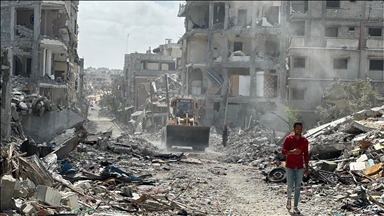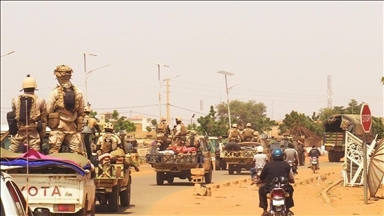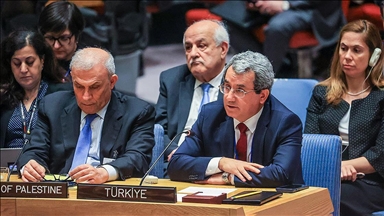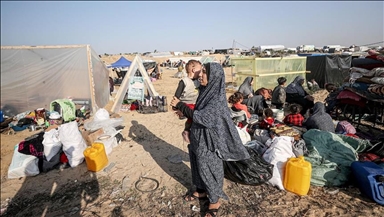Empty Promises: UN failing its mandate in Syria yet again?
What has been unfolding in Syria is very reminiscent of a time in near history, in which the international community was rendered useless
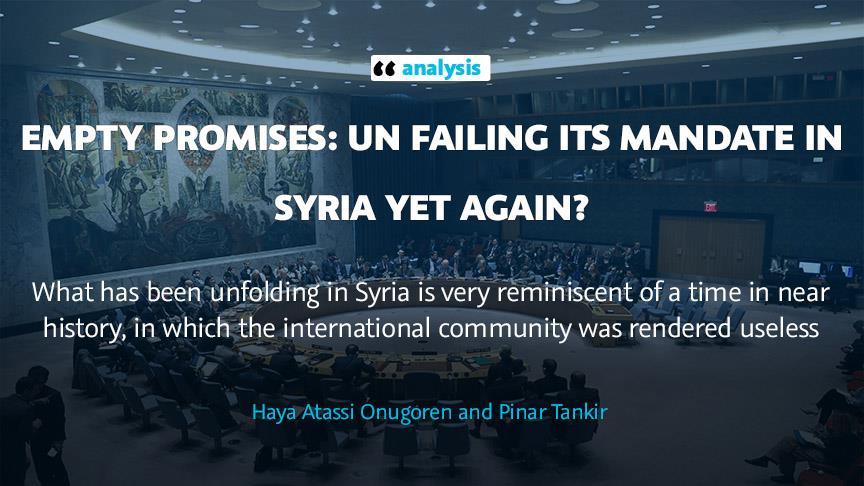
By Haya Atassi Önügören and Pınar Tankır
- The writers work at TRT World Research Centre
ISTANBUL
On February 19, the Syrian regime backed by Russian forces launched a ruthless offensive on Eastern Ghouta, killing approximately 1,300 innocent civilians and injuring more than 5,000.
The plight of the Syrian population in Eastern Ghouta is unfathomable as the town has been under siege by the Syrian government since 2013, and is the last rebel stronghold near the capital.
Approximately 400,000 civilians have been living under the Eastern Ghouta siege, and this last offensive has led to the internal displacement of 150,000 civilians, who were relocated from one distressed area in Eastern Ghouta to another.
Strategically, all the Assad regime has been able to achieve is to divide Eastern Ghouta into three zones, each controlled by anti-regime opposition military groups.
Hence, what the regime launched as an offensive to regain control over Eastern Ghouta ended up falling short, as opposition groups refuse to surrender.
With the Syrian war entering its 8th year, efforts by the international community to broker peace have not been successful.
Thus, it is imperative to question whether the international community has failed the Syrian people.
Moreover, the failure to abide by the February 26 ceasefire leads us to question the effectiveness of the United Nations Security Council, as no real viable solution has been reached.
It is here we question why international organizations like the United Nations (UN), along with its Security Council (UNSC), remain ineffective in finding a solution to act in accordance with its Charter and effectively put a halt to the Assad regime’s ongoing brutality.
Undemocratic structure of UNSC
The UN, along with its Security Council, is considered, without a doubt, as the most important international organization on the world stage.
The UN’s principal aims, in giving mandate to the Security Council, -- as spelled out by its 1945 Charter -- are to “safeguard peace and security in order to save succeeding generations from the scourge of war; to reaffirm faith in fundamental human rights and uphold respect for international law”.
However, the structure of the United Nations Security Council often limits its own capacity to effectively enforce a system of collective security, as is evident in the case of Syria.
Seven years on and no real progress has been made by the United Nations toward putting an end to the brutality of the Assad regime.
It is imperative that we understand that the ineffectiveness of the organization stems from the fact that it is anachronistic and self-serving; the undemocratic structure of the Security Council is what negates its purpose, which is to safeguard peace and security.
It is Chapter V, Article 27 of the UN Charter that gives the main victors of the Second World War the power of veto.
The clause states, “decisions on procedural matters will be made by an affirmative vote of at least nine out of fifteen current members, and decisions on substantive matters are made by affirmative votes of nine members, including the concurring votes of the permanent members.”
However, the issue with Article 27 is that, as has already been pointed out, it has limited the capacity of the Security Council in efficiently enforcing a system of collective security.
More importantly, it can do no more than what its permanent member states permit.
As a result, its role has been confined to “providing mechanisms that facilitate the peaceful resolution of international conflicts”.
Even in this regard, its record has been patchy, as the permanent members have often used the veto power “in accordance with their national interests”.
The international community’s inability to come to a decision to put an end to the violence in Syria is represented through the incompetence of the Security Council.
The constant undermining of resolutions on Syria by the ‘P5’ -- the five permanent members -- to serve their own interests is nothing less than shameful.
Therefore, the failure of the UN to act in accordance with its Charter continues to tarnish the reputation of the organization as well as reveal its inability to act in defense of its Charter’s promise.
Timeline of failed ceasefires
Despite the UN’s attempts, as well as those by the Security Council, at brokering ceasefires in Syria, they have continuously failed in enforcing them on the Syrian government.
Below is a timeline of the failed ceasefires that have not been upheld.
In March 2012, Kofi Annan, the former UN-Arab League joint Special Envoy of the Secretary General (SESG) to Syria, presented his six-point peace plan to the UNSC.
However, despite its alleged commitment to the peace plan, the Assad regime did not withdraw its forces from the cities or de-escalate violence, and continued the heavy shelling on Homs and Hama.
In April 2012, an unarmed UN monitoring mission, commanded by Norwegian Major General Robert Mood, was set up due to the escalation of violence in the country, but it was suspended in June 2012.
As a result of the lack of commitment by the Syrian regime and the indecisiveness of the UNSC, Kofi Annan stepped down as UN-Arab League envoy to Syria, and Lakhdar Brahimi was appointed instead, who also later relinquished his post in May 2014.
The former UN Secretary General Ban Ki-moon appointed Staffan de Mistura as Special Envoy to Syria, who in turn suggested his Four-Committee Initiative in 2015.
In February 2016, a ceasefire was negotiated by the International Syria Support Group.
The UNSC voted on Resolution 2268, demanding all parties to comply with the U.S.-Russian deal on a nationwide cessation of hostilities in Syria, which applied to both the government and the opposition, but excluded Daesh and the al-Nusra front while demanding an unimpeded humanitarian aid access to all areas. This deal reduced the violence, but was never entirely successful.
In September 2016, a ceasefire was negotiated by the U.S. and Russia with a focus on East Aleppo.
Yet the Syrian government refused to permit aid convoys waiting on the Turkish border to enter East Aleppo, and the food items in the trucks perished and the aid was not delivered.
The ceasefire collapsed after the Syrian Arab Red Crescent (SARC) aid convoy was attacked, reportedly, by Russian and Syrian forces. It is believed that the government used the ceasefire to prepare for an assault on East Aleppo to reclaim it.
In February 2018, a resolution supported by all 15 members of the UNSC was unanimously passed to enforce a month-long ceasefire across Syria without delay in delivering humanitarian aid.
Yet the ceasefire was challenged by the Assad regime, which continued its brutal offensive on Eastern Ghouta. However, this is as a result of Russia’s unwillingness to push Assad to comply with the demands of the International community.
Is it time to reform the UNSC?
Looking at the success rate of the international efforts at brokering peace, it is clear that the international community is in a deadlock that has disabled it to put a stop to the most recent upsurge of death and destruction in Eastern Ghouta.
Russia has consistently vetoed resolutions on Syria and is complicit in crimes committed against the Syrian people.
It is evident that power politics continues to hinder any real progress in brokering peace in Syria because Russia continues to use its veto power to back Assad.
This ultimately exposes the undemocratic structure of the UNSC as well as its ineffectiveness in defending its Charter’s promise.
What has been unfolding in Syria is very reminiscent of a time in near history, in which the international community was rendered useless.
Just like in Rwanda and Bosnia in the 1990s, the United Nations is failing its mandate yet again.
The inability of the UN to act in defense of its own Charter brings up questions of reform.
Is it time to reform the UNSC? It is clear that it no longer represents the current world order.
More specifically, as the Syrian case has demonstrated, it has failed to “safeguard peace and security in order to save succeeding generations from the scourge of war”.
*Opinions expressed in this article are the author’s own and do not necessarily reflect the editorial policy of Anadolu Agency. Anadolu Agency website contains only a portion of the news stories offered to subscribers in the AA News Broadcasting System (HAS), and in summarized form. Please contact us for subscription options.




